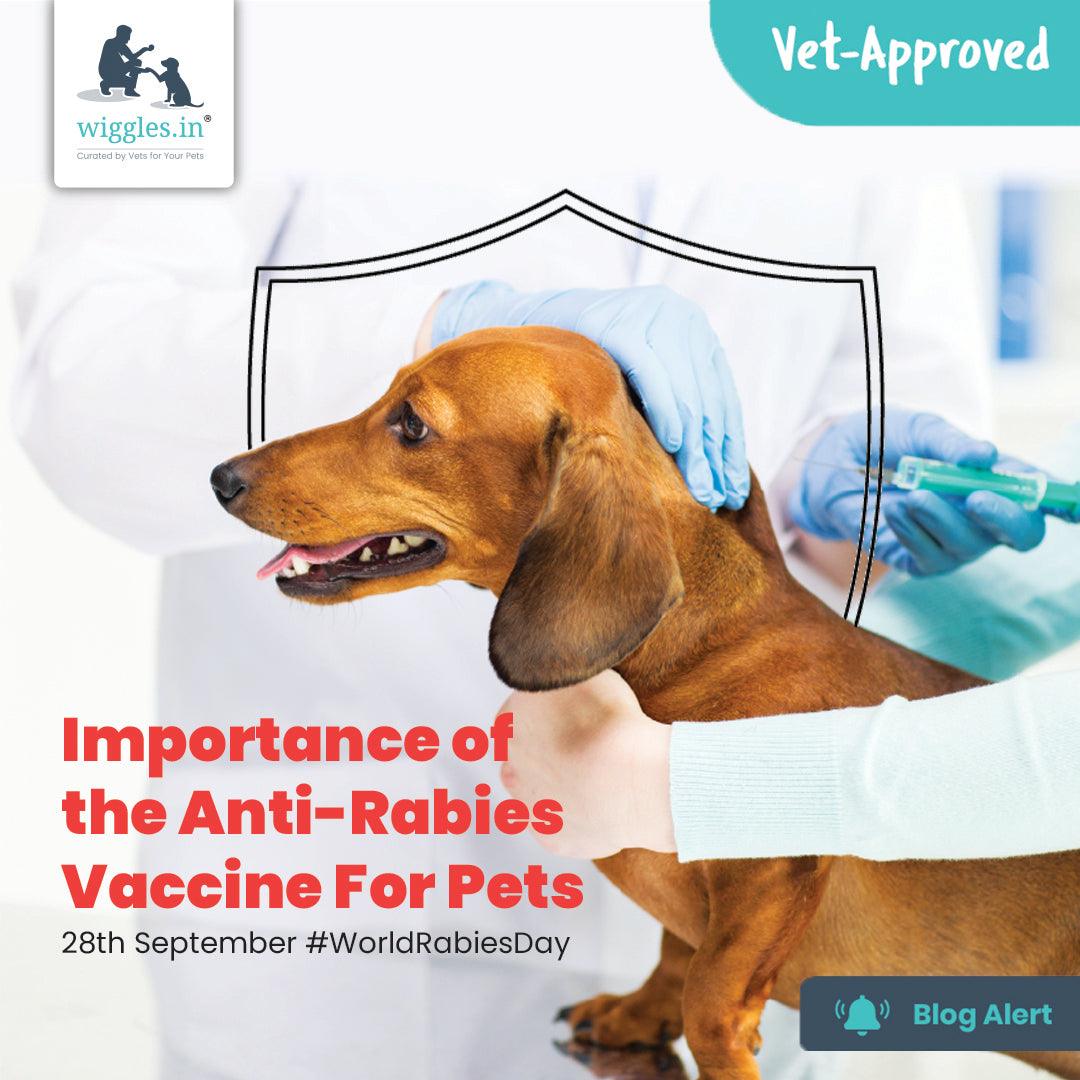Every year, 28th September is celebrated as #WorldRabiesDay to raise awareness about rabies, how to prevent it and map the progress of defeating it together as a community. It is also noteworthy that 28th September marks the death anniversary of Louis Pasteur, a French microbiologist who developed the first anti-rabies vaccine. But what is rabies? How can a simple vaccine prevent the spread of rabies in canines and from canines to humans? Is it required for your pets?
Our in-house vets have answered these questions in detail.
What is rabies?
Rabies is a virus that spreads from rabid animals to other animals and humans through bites and scratches. It’s an RNA virus that belongs to the rhabdovirus family. Although preventable by a simple anti-rabies vaccine, a lot of animals die every year due to this virus. The rabies virus is found in wild animals like bats, raccoons, skunks, and foxes but our pets are prone to carry it too.
How does it spread?
The rabies virus spreads through a rabid animal’s saliva when they bite or scratch someone. It can also spread through licks on broken skin or injuries. Usually, dogs are considered to be the biggest spreader of the virus although a lot of other wild animals like mongoose, jackal, fox, wolf and other carnivorous animals are also responsible for the spread in humans.
First-aid for rabies
If you or your pet has been bitten by a rabid animal, please ensure that first-aid is provided immediately, without any delay. Follow these steps if such an incident occurs -
- Wash the wound immediately with soap and water for at least 10 to 15 minutes. If soap is not available, flush the wound with water alone. This is known to be the most effective first-aid treatment against rabies.
- If it’s a major wound, it should be cleaned thoroughly with 70% alcohol/ethanol or povidone-iodine solution, whichever is available. As soon as possible, take the person/animal to a healthcare facility for further treatment.
Symptoms of rabies in pets and humans
Rabies if not treated immediately can be fatal. If your pet or you have been bitten by a rabid animal, it’s always better to administer first-aid and get anti-rabies vaccines. Symptoms of rabies in pets are of the following nature -
- Fever
- Sudden loss of appetite
- Irritability
- Difficulty swallowing
- Excessive drooling
- Nervousness
- Seizures
- Paralysis
As the days pass by, your pet can experience severe symptoms like overstimulation and what would appear like an irrational fear of light, movement and sound.
Anti-rabies vaccine
We often find people asking if they get bitten by a dog, what should they do? The answer is to take the anti-rabies vaccine. In simpler words, it’s an injection for dog bites.
Anti-rabies vaccines are available for both humans and pets. When it comes to pets, there are several anti-rabies vaccines available over the counter as well as in veterinary hospitals. But as a thumb rule, pets should receive anti-rabies vaccination in the following manner -
Vaccination schedule for animals (Pre-exposure)
First dose - After 3 months of age
Annual boosters thereafter
Vaccination schedule for animals (Post-exposure)
1st dose - Day 0 (on the day of exposure)
2nd dose - Day 3
3rd dose - Day 7
4th dose - Day 14
5th dose - Day 28
6th dose - Day 90
Vaccination schedule for humans (Post-exposure)
1st dose - Day 0 (on the day of exposure)
2nd dose - Day 3
3rd dose - Day 7
4th dose - Day 14
5th dose - Day 28
6th dose - Day 90
Vaccination schedule for humans (Pre-exposure)
1st dose - Day 0
2nd dose - Day 3
3rd dose - Day 7
4th dose - Day 14
5th dose - Day 28
Some commonly available rabies vaccines in India are Rabisin, Raksharab, Rabvac, Canvac R, Nobivac Rabies. Rabies injection prices for pets start from Rs. 300 (approx.) while for humans, since there are six doses, the overall cost can exceed Rs.2000.
Unlike other infections, rabies can only be prevented with an anti-rabies vaccine only, if taken before the symptoms appear.
On the occasion of #WorldRabiesDay, 28th September 2021, Team Wiggles in collaboration with KNP College of Veterinary & Animal Sciences, Shirwal, Satara ensured that over 150+ community dogs and pets were vaccinated against rabies. The drive was successfully conducted and here’s proof of all our furry friends getting jabbed.
Our vet expert Dr. Pranjal also answered pet parent’s questions related to rabies.
Composition of ARV injection
An ARV or anti-rabies vaccine contains an active immunizing agent which is nothing but a weaker form of the virus. In humans, it is injected through the intramuscular route (through the muscles) into the body while in pets, it is subcutaneous. Once injected, it works by letting your body produce its protection in the form of antibodies against the rabies virus.
The ARV can be administered in 2 different conditions -
- Post-exposure prophylaxis - In this condition, the rabies vaccine is given after the person or animal has been exposed to the virus. In simpler words, if the person or animal has been bitten by a rabid animal, they will be vaccinated against the virus. This is known as post-exposure prophylaxis i.e. once the person or animal has been exposed to the virus.
- Pre-exposure prophylaxis - Under certain circumstances, the rabies vaccine is also given ahead of time to people who run a huge risk of contracting the virus like veterinarians, dog trainers, para vets, pet handlers etc. Similarly, if someone is traveling to high-risk areas or countries, or going on a vacation where they will come in contact with wild animals, a shot of rabies vaccine is mandatory. This is called pre-exposure prophylaxis where due to the fear of contracting the virus, the rabies vaccine is injected beforehand. Please note, there are no single-dose rabies vaccines anywhere in the world that can offer lifelong protection to pets or animals. The single dose provides protection for a limited period of time only.
Why is it important for pets to get the ARV shot?
Every year, many animals die due to the rabies virus. It is 100% fatal and presently has no medical remedies. The virus jumps from wild animals to domestic animals to pets and then to humans. This chain of events puts pets and people at a high risk of contracting the virus, knowingly and even unknowingly. The possibility of your pet or a streetie passing it to another pet or streetie is also equally huge.
Since there are no treatments, the only way to prevent this virus is to take the vaccine for pets and humans alike. And to ensure that everyone is equally protected, the anti-rabies vaccine should also be administered to community dogs and cats.
Team Wiggles has also started an initiative called #BondedByBlood through which we are trying to create an online repository of ready pet donors. Register your pet today & save a life tomorrow - https://bit.ly/BBBDonorRegistration
*Disclaimer: This blog is vet-approved and includes original content which is compiled after thorough research and authenticity by our in-house team of vets and content experts. It is always advisable to consult a veterinarian before you try any products, pet food or any kind of treatment/medicines on your pets, as each pet is unique and will respond differently.



















